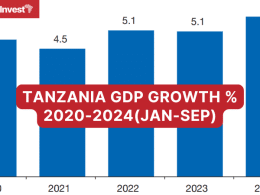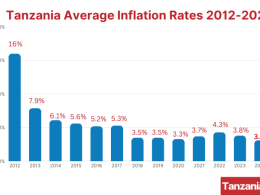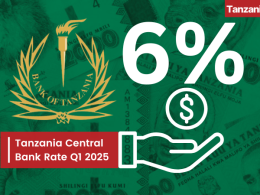The International Monetary Fund (IMF) has approved a $149.4 million disbursement under the Extended Credit Facility (ECF) and a $786.2 million arrangement under the Resilience and Sustainability Facility (RSF) for Tanzania.
This dual approval underscores Tanzania’s robust economic reform performance and commitment to building climate resilience.
The completion of the third review under the ECF arrangement allows for an immediate disbursement of approximately $149.4 million.
This facility, established to provide concessional financial assistance to countries with protracted balance of payments issues, supports Tanzania’s budgetary needs and economic reforms.
Since its approval in July 2022, Tanzania has accessed a total of $606.4 million under this program.
In addition, the IMF has approved a substantial 23-month RSF arrangement amounting to $786.2 million.
This facility aims to support Tanzania’s efforts to address climate change challenges and enhance the economy’s resilience.
The RSF will coincide with the remaining period of the ECF, now extended to May 2026. This initiative highlights the IMF’s commitment to supporting climate policy reforms in developing countries.
The IMF explains that Tanzania’s economic growth rebounded in 2023 after a slowdown in 2022. The country has maintained inflation within the target range set by the Bank of Tanzania and is progressing well with its structural reform agenda. Fiscal consolidation efforts are ongoing, contributing to a narrowing current account deficit.
Immediate policy priorities for Tanzania include allowing exchange rate flexibility and maintaining fiscal consolidation while safeguarding priority social spending. Medium-term goals focus on enhancing public financial management, improving investment efficiency, and supporting sustainable and inclusive growth.
These efforts are expected to strengthen macroeconomic stability and foster long-term development.
Following the Executive Board discussion, IMF Deputy Managing Director and Acting Chair, Mr. Li, praised Tanzania’s performance under the ECF program, emphasizing the importance of continued fiscal reforms, improved cash management, and transparent foreign exchange policies to ensure economic stability.
He highlighted that the ongoing growth-friendly fiscal consolidation will help buttress fiscal and debt sustainability, with efforts geared towards enhancing domestic revenue mobilization and strengthening public financial and investment management.










